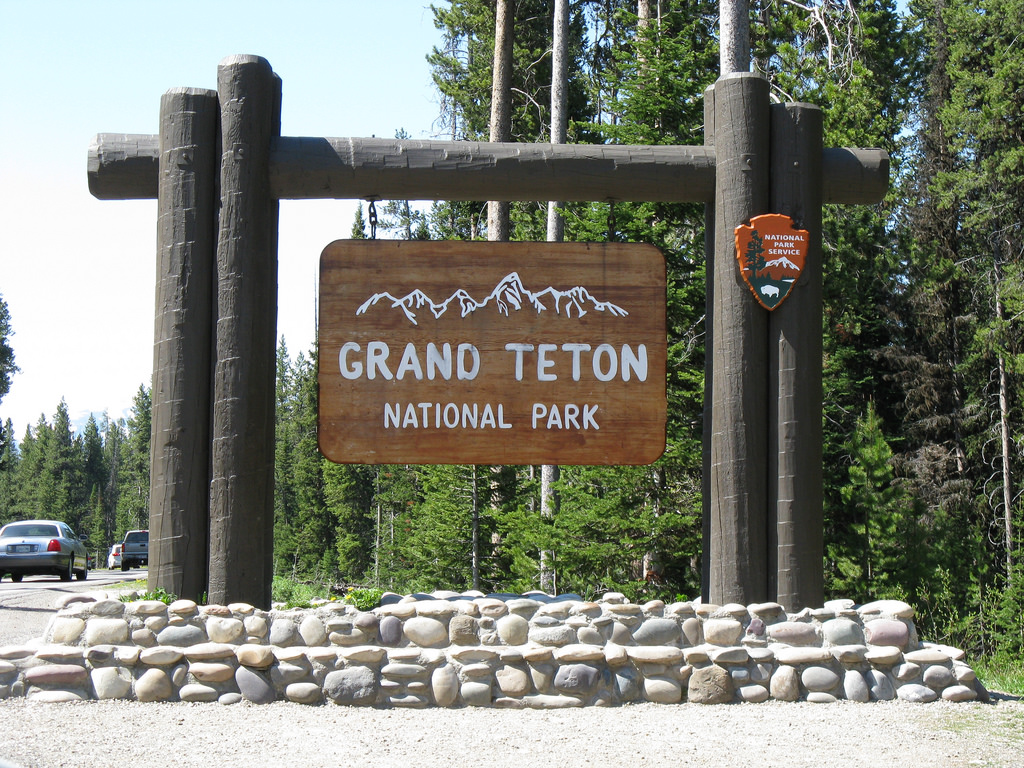
On November 1, 2024, the U.S. Fish and Wildlife Service, in partnership with Grand Teton National Park, honored the legacy of grizzly bear #399 by returning her ashes to the Pilgrim Creek area of the park, where she spent much of her life. Following a respectful cremation, grizzly #399’s remains were brought back to Grand Teton National Park, recognizing the connection grizzly #399 had to the area and the interest she inspired among visitors to the Greater Yellowstone Ecosystem.
“399 will always be part of this special place,” said Grand Teton National Park Superintendent Chip Jenkins. “However, there is still work to do to ensure her descendants and all grizzly bears continue to thrive in the Greater Yellowstone Ecosystem. It’s up to all of us to make sure they do.”
Grizzly bear #399, who lived a long life and contributed significantly to the grizzly bear population in the Greater Yellowstone Ecosystem, was killed in an accidental vehicle collision on October 22, 2024, approximately 40 miles south of Grand Teton National Park. Following the accident, the U.S. Fish and Wildlife Service and National Park Service received considerable public interest regarding how to honor the bear’s legacy. Taking into account the range of thoughts shared by the public, as well as operational and safety considerations, wildlife managers cremated her remains and returned them to her natural habitat.
“Grizzly bear #399 captivated people around the world, inspiring many to learn about the conservation of this important species,” said Hilary Cooley, Grizzly Bear Recovery Coordinator for the U.S. Fish and Wildlife Service. “We received an outpouring of appreciation for #399 and aimed to honor these sentiments in handling her remains.”
Grizzly bear #399’s yearling has not been located, though there is no indication it was struck in the collision. Given the bear’s age and the time of year, the yearling has a strong chance of surviving independently, and there are no current plans to capture it.
Grizzly bear #399’s life brought global attention to the grizzly population in the Greater Yellowstone Ecosystem and underscored the unique opportunity and responsibility to coexist with these iconic animals. Learn more about coexisting with grizzly bears at https://igbconline.org/be-bear-aware/.
The National Park Service and the U.S. Fish and Wildlife Service will continue to work with partners to find ways to honor the legacy of grizzly bear #399 through education and conservation efforts.
_____________________________________________________________________________
Grizzly bear #399 facts:
- 28 years old; one of only 12 known grizzly bears in the Greater Yellowstone Ecosystem to reach the age of 28 or older, representing 0.6% of all bears documented and aged by the Interagency Grizzly Bear Study Team since 1973 as part of the long-term research program.
- Oldest documented grizzly bear to reproduce in the GYE (her yearling was born in 2023 when she was 27 years old).
- Produced 18 offspring over her lifetime.
- Long-lived and successful mothers like 399 are important drivers of the health of this grizzly bear population.
Grizzly bear/vehicle collision information from the Interagency Grizzly Bear Study Team:
- From 2009 to 2023, there have been 49 grizzly bear mortalities due to vehicle collisions in the Greater Yellowstone Ecosystem (all sex and age classes combined).
- Average number of grizzly bear mortalities in the GYE due to vehicle collisions during 2009-2023: 3.3 bears/year.
- In 2024, including this incident, there have been 2 grizzly bear mortalities from vehicle strikes in the GYE.
